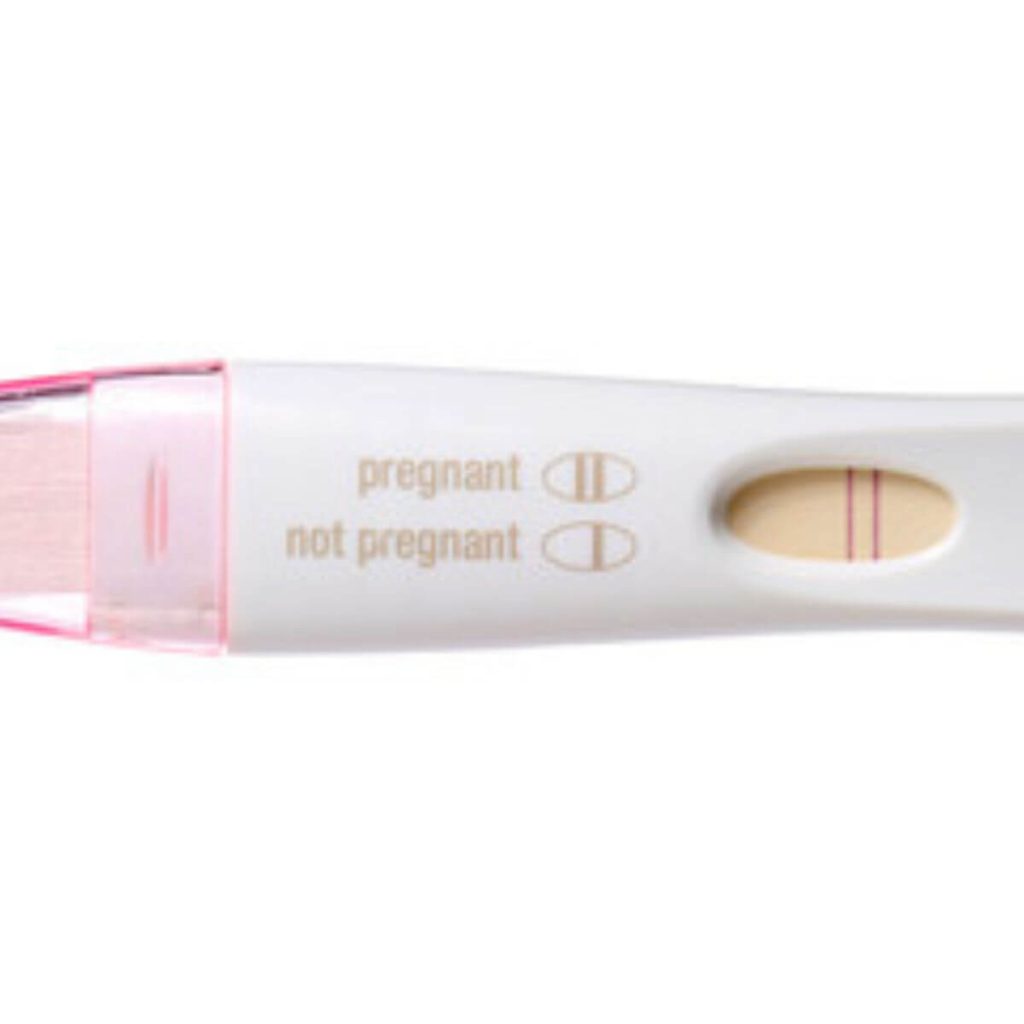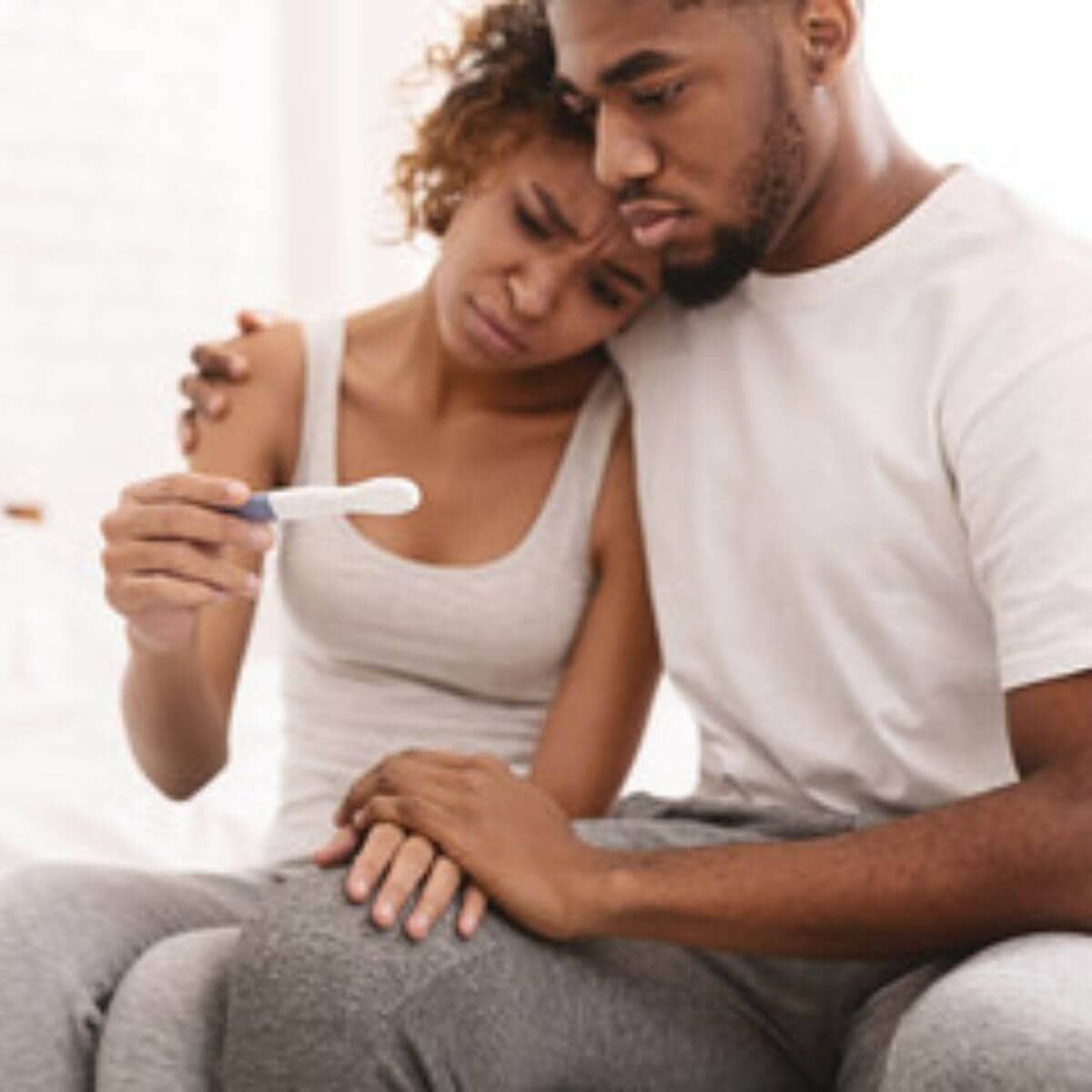When companies market over-the-counter medical products as having “99% accurate,” we consumers believe we’re getting the accuracy we want and deserve. Unfortunately, false positive pregnancy tests happen more than you might think.
You may have heard of false negatives; you might even have a friend who’s experienced an incorrect negative result. Most people don’t realize, however, that it’s also possible to get a positive test result when you’re not actually pregnant.
The question is: why?! This seems like a cruel joke when you’re trying to conceive (TTC), right??
The hard news is that it’s not a matter of whether false positive pregnancy tests happen; research shows they do.
It’s crucial to understand why inaccurate tests sometimes occur in early pregnancy. Sometimes they can happen as a result of medical conditions or ignoring instructions on the pregnancy test. Our team is here to explain why your test results might not be valid and what you can do in the future to prevent a false positive pregnancy test.

This site contains affiliate links, meaning that we earn a small commission for purchases made through our site. We only recommend products we personally use, love, or have thoroughly vetted.
- How Do Urine Pregnancy Tests Work?
- How Accurate Are Home Pregnancy Tests?
- Common Reasons You Might Experience Incorrect Home Pregnancy Test Results
- True or False: Do Certain Medical Conditions Cause False Positives?
- How to Take a Pregnancy Test 101: Tips for Ensuring Trustworthy Results
- False Positive Pregnancy Tests FAQ:
- Home Pregnancy Tests Aren’t Always Perfect
How Do Urine Pregnancy Tests Work?
A few days after you’ve started experiencing implantation symptoms and your fertilized egg implants into your uterine wall, your body will begin producing a hormone called human chorionic gonadotropin (hCG).
Urine tests work by measuring the hCG levels in your pee to determine whether you’ve conceived.
The most dependable time to take a pregnancy test is the day after your missed period, but in some cases, your hCG may be high enough for detection around eight days after ovulation.
How Accurate Are Home Pregnancy Tests?
Modern at-home pregnancy tests typically claim 99% accurate results. This closely mimics the accuracy of urine tests performed in doctor’s offices.
While there haven’t been many external studies on the overall reliability of these at-home tests, most experts believe they’re between 97 and 99% accurate.
What Are the Chances of Getting a False Positive Pregnancy Test Result?
False positive pregnancy tests are undoubtedly frustrating. Thankfully, experts believe an incorrect positive result happens less than 1% of the time.
The silver lining, however, is that experts state these incorrect results are incredibly rare.

Which Home Pregnancy Tests Should You Be Using?
If you’re in the market for the most trustworthy pregnancy test results, we can help. We have put together a list of our top 3 favorite pregnancy tests:
Are Blood Pregnancy Tests More Accurate?
If you want to avoid the likelihood of incorrect results from otc pregnancy tests, your best bet is to ask your medical provider for a blood pregnancy test. These are not only more accurate, but they’re also more sensitive and can provide results earlier than at-home tests.
Common Reasons You Might Experience Incorrect Home Pregnancy Test Results
Now comes the big question – why and how do false positives happen? There are several reasons you might end up with a false-positive test result. Some of the most common include:
1. You Recently Gave Birth
Studies show hCG levels drop significantly by the third week of your postpartum period. However, there’s still a chance you could have trace amounts in your system weeks later. If you take a test shortly after delivery, there’s a chance it could still pick up enough hCG from the previous pregnancy.
2. You Experienced a Missed Miscarriage
Most women assume they would know if they were having a miscarriage or not. Unfortunately, this isn’t always the case. Patients occasionally think a miscarriage is just their menstrual cycle.
Unknown pregnancy losses account for 1 – 3% of pregnancies. Missed miscarriages could lead to a false-positive result.
3. You’re Taking Synthetic hCG for Fertility
If you’re struggling to conceive naturally, your doctor might try putting you on fertility medications to improve your chances. One of these is often synthetic hCG.
When used with other fertility medications, hCG injections can increase your chances of getting pregnant. These medications, i.e., Novarel, Ovidrel, and Pregnyl, can also lead to false positive pregnancy tests.
You should wait for one to two weeks after finishing your treatment protocol before testing for the most accurate results.
Other Medications that Can Cause False-Positive Results
Synthetic hCG isn’t the only medication that can lead to inaccurate results. Other pharmaceuticals can cause incorrect readings, too. Some of these include:
- Diuretics
- Antihistamines
- Anti-Anxiety Medications
- Antipsychotics
4. You’re Dealing With a Non-Viable Pregnancy
In the case of conditions like ectopic pregnancy, chemical pregnancy, or molar pregnancy, you will likely get a positive test result. Unfortunately, these are not considered viable pregnancies.
In cases like these, miscarriage will happen naturally, or your doctor will prescribe medication, such as misoprostol to start one. Surgery, such as dilation and curettage (D&C), is required in some situations.
5. Your Evaporation Line is Hard to Read
If your at-home test relies on evaporation lines, there’s a chance you might view negative test results as positive ones. Make sure to read the test instructions carefully for the most accurate results.
True or False: Do Certain Medical Conditions Cause False Positives?
You may have heard that various medical conditions can lead to unreliable pregnancy test results…but is it true?
Unfortunately, yes.
Just as certain conditions can cause a false negative pregnancy test, false positives also happen.
If you’re dealing with conditions or diseases, such as ovarian cysts, cancer, or kidney disease, and have received a positive pregnancy test, it’s a good idea to speak with your doctor. They can evaluate the situation and help you determine whether your results are accurate.

How to Take a Pregnancy Test 101: Tips for Ensuring Trustworthy Results
It’s impossible to discuss incorrect pregnancy tests without mentioning one of the most common reasons they pop up…user error.
While it’s certainly possible your false-positive result stems from another problem, there’s a strong possibility you simply took the test incorrectly. To avoid situations like these, following the instructions is essential! We know this can be so difficult when you’re waiting to see that precious result!
Want some tips outside of reading the packaging materials? No problem!
- Check the expiration date on your test. Expired products can lead to unreliable results.
- Take the test with your first-morning urine. It’s more concentrated and therefore provides more accurate hCG levels.
- Dip your pregnancy test into a cup of pee instead of trying to wet it mid-stream.
- Wait the appropriate amount of time…but not TOO LONG either. Evaporation lines can change if tests are left out too long.
- Don’t take the test early! The two week wait (2WW) really is just that… a two week wait.
False Positive Pregnancy Tests FAQ:
Get ready to recap everything you need to know about false positive pregnancy tests!
False positive pregnancy tests will show that you are pregnant when you’re actually not. While they’re very infrequent, they do happen occasionally.
You might get a false-positive test for many different reasons, including missed miscarriages, taking the test too soon after childbirth, interactions from synthetic hCG, and non-viable pregnancies.
In general, anyone could receive a false positive pregnancy test. However, women who suffer from kidney disease, ovarian cysts, or cancer may be at a higher risk.
Take your pregnancy test the first day after your missed period for the most accurate reading.
If you want the most accurate pregnancy test results possible, your best bet is to make an appointment with your ob-gyn for a blood test.
Home Pregnancy Tests Aren’t Always Perfect
As with anything, home pregnancy tests aren’t fool-proof. While we might wish they were defectless, mistakes do happen!
If you’re suspicious that the positive pregnancy test you took is incorrect, you have a couple of options. First, you can wait a few days to another week and test again, or you can make an appointment with your physician for a blood test.
Have you or someone you know ever experienced a false positive?










